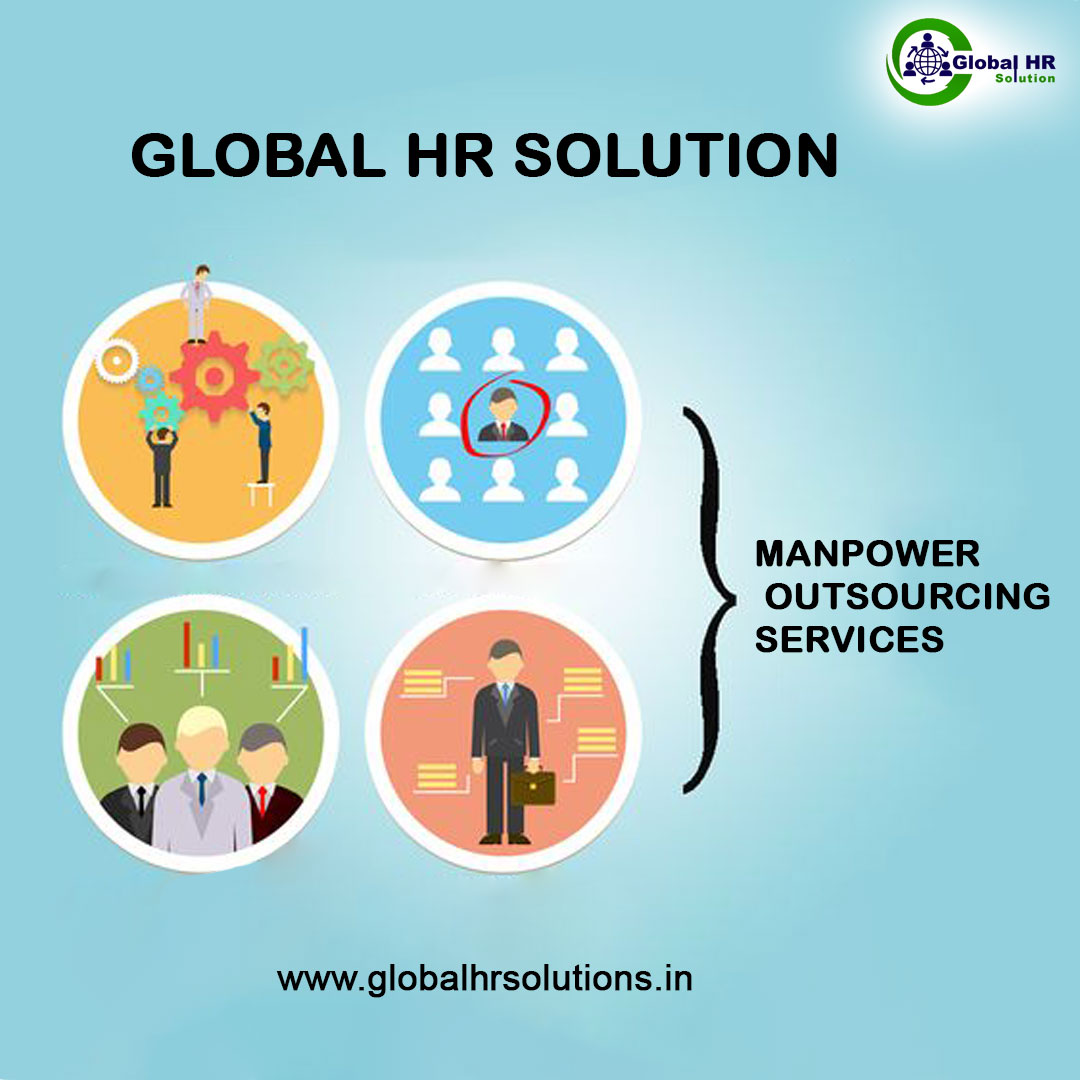What do you mean by Human Resources (HR's)?
Meaning & Definition
Human resources (HR) refers to the department within an organization that is responsible for managing and overseeing the various aspects of the employer-employee relationship. It encompasses a wide range of functions aimed at effectively utilizing and developing an organization's human capital to achieve its strategic objectives. The primary focus of HR is on the people who work for the organization.

key Aspects of Human Resources;
- Recruitment and Staffing: Identifying workforce needs, creating job descriptions, and recruiting qualified candidates to fill job vacancies.
- Employee Onboarding: Welcoming and integrating new employees into the organization through orientation, training, and providing necessary resources.
- Training and Development: Identifying skill gaps, designing training programs, and fostering continuous learning to enhance employee capabilities.
- Performance Management: Establishing performance expectations, conducting evaluations, and providing feedback to employees to improve their performance.
- Compensation and Benefits: Designing and managing compensation structures, including salaries, bonuses, and benefits such as healthcare and retirement plans.
- Employee Relations: Managing relationships between employees and the organization, addressing conflicts, and ensuring a positive work environment.
- HR Policies and Compliance: Developing, implementing, and enforcing HR policies and procedures to ensure compliance with legal and regulatory requirements.
- Workforce Planning: Anticipating and planning for future workforce needs, including talent acquisition, succession planning, and workforce restructuring.
- Diversity and Inclusion: Promoting diversity and inclusion within the workplace to create a more equitable and welcoming environment.
- Employee Engagement: Fostering a positive workplace culture and implementing strategies to enhance employee satisfaction and engagement.
- Employee Retention: Identifying factors that contribute to employee turnover and implementing retention strategies to retain valuable talent.
- HR Technology: Utilizing technology, such as Human Resource Information Systems (HRIS), for efficient management of HR processes, data, and analytics.
- Strategic HR Planning: Aligning HR practices with the overall strategic goals of the organization and contributing to the development and execution of business plans.
Human resources professionals play a critical role in supporting the organization's success by ensuring that it has the right people, with the right skills, in the right positions. HR activities are diverse and dynamic, evolving to meet the changing needs of the workforce and the organization. The HR department acts as a bridge between management and employees, addressing the needs of both parties and contributing to the overall effectiveness and efficiency of the organization.
Why is Human Resources Important?
Human resources (HR) is critically important to organizations for several reasons, as it plays a
central
role in managing the most valuable asset: the workforce. Here are key reasons why human resources is
crucial for the success of an organization.
- Talent Acquisition and Recruitment:
HR is responsible for attracting, identifying, and hiring the right talent for the
organization.
Effective recruitment ensures that the company has skilled and qualified individuals to meet
its
business needs.
- Employee Onboarding and Integration:
HR facilitates the smooth integration of new employees into the organization.
Onboarding processes conducted by HR help new hires understand company culture, policies,
and
their roles.
- Training and Development:
HR designs and implements training programs to enhance the skills and capabilities of
employees.
Continuous learning opportunities contribute to employee growth and adaptability to changing
business needs.
- Performance Management:
HR establishes performance standards and conducts evaluations to ensure that employees are
meeting expectations.
Effective performance management contributes to individual and organizational success.
- Compensation and Benefits:
HR manages compensation structures, including salaries, bonuses, and benefits, to attract
and
retain top talent.
Competitive compensation and benefits packages contribute to employee satisfaction and
motivation.
- Employee Relations:
HR plays a crucial role in managing relationships between employees and the organization.
Resolving conflicts, addressing concerns, and fostering a positive work environment
contribute
to employee well-being.
- HR Policies and Compliance:
HR develops and enforces policies and procedures to ensure legal and regulatory compliance.
Compliance with employment laws and regulations helps mitigate legal risks for the
organization.
- Workforce Planning:
HR engages in strategic workforce planning to align the organization's workforce with its
business objectives.
Anticipating future workforce needs ensures that the organization has the right talent in
place.
- Diversity and Inclusion:
HR promotes diversity and inclusion within the workplace, recognizing the value of different
perspectives and backgrounds.
A diverse workforce can enhance creativity, innovation, and overall organizational
performance.
- Employee Engagement:
HR develops strategies to foster employee engagement and satisfaction.
Engaged employees are more likely to be productive, innovative, and committed to the
organization.
- Employee Retention:
HR identifies factors contributing to turnover and implements retention strategies.
Retaining experienced and skilled employees is cost-effective and contributes to
organizational
stability.
- HR Technology:
HR utilizes technology, such as Human Resource Information Systems (HRIS), to streamline
processes and manage data efficiently.
Automation and analytics contribute to data-driven decision-making within the HR function.
- Strategic HR Planning:
HR aligns its practices with overall organizational strategy, contributing to the
achievement of
business goals.
Strategic HR planning ensures that the workforce is positioned to support the organization's
future success.
In summary, human resources is important because it plays a multifaceted role in managing the
people
aspect of organizations. From talent acquisition to employee development, engagement, and
compliance, HR contributes to creating a positive, productive, and legally compliant work
environment, which is vital for the overall success and sustainability of the organization.
What is Human Resource management (HRM)?
 Human Resource Management (HRM) is the strategic approach to managing an organization's most
valuable assets — its people. It involves the coordination of various functions related to
recruitment, development, retention, and management of employees to contribute effectively to
the
achievement of organizational goals. HRM encompasses a wide range of activities and
responsibilities
throughout the employment lifecycle.
Human Resource Management (HRM) is the strategic approach to managing an organization's most
valuable assets — its people. It involves the coordination of various functions related to
recruitment, development, retention, and management of employees to contribute effectively to
the
achievement of organizational goals. HRM encompasses a wide range of activities and
responsibilities
throughout the employment lifecycle.
key aspects of human resource management
Recruitment and Staffing
- Identifying staffing needs, creating job descriptions, and recruiting qualified
candidates.
- Conducting interviews, screening applicants, and managing the hiring process.
Employee Onboarding
- Welcoming new employees and helping them integrate into the organization.
- Providing orientation, training, and necessary resources to ensure a smooth transition.
Training and Development
- Identifying training needs and designing programs to enhance employee skills.
- Offering opportunities for professional development and career growth.
Performance Management
- Establishing performance standards and expectations.
- Conducting performance appraisals, providing feedback, and managing performance
improvement
plans.
Compensation and Benefits
- Developing and managing compensation structures.
- Administering employee benefits, such as health insurance, retirement plans, and
bonuses.
Employee Relations
- Ensuring compliance with labor laws and regulations.
- Managing relationships between employees and the organization.
- Handling conflicts, grievances, and promoting a positive work environment.
HR Policies and Compliance
- Developing and implementing HR policies and procedures.
Workforce Planning
- Anticipating future workforce needs based on organizational goals.
- Planning for succession, talent acquisition, and workforce restructuring.
Diversity and Inclusion
- Promoting diversity and inclusion within the workplace.
- Implementing initiatives to create an inclusive and equitable environment.
Employee Engagement
- Fostering a positive workplace culture.
- Implementing strategies to enhance employee engagement and satisfaction.
Employee Retention
- Identifying factors contributing to employee turnover.
- Implementing retention strategies to retain top talent.
HR Technology
- Utilizing technology, such as Human Resource Information Systems (HRIS), for efficient
management of HR processes and data.
Strategic HR Planning
- Aligning HR practices with overall organizational strategies.
- Contributing to the development and execution of business plans.
Human Resource Management plays a crucial role in creating a supportive and productive work
environment. HR professionals collaborate with other departments to ensure that the
organization
has the right talent, engaged employees, and effective HR policies to achieve its
objectives.
The field is dynamic and continually evolves to adapt to changes in the business environment
and
workforce trends.
HR CONSULTANCY SERVICES
Human Resources (HR) consultancy services refer to specialized services provided by external
HR
professionals or consulting firms to assist organizations in various aspects of human
resource
management. These services can be tailored to meet the unique needs and challenges of
different
businesses. HR consultants offer expertise, guidance, and solutions to improve HR processes,
address specific issues, and align HR practices with the overall goals of the organization.
 Recruitment and Staffing
Recruitment and Staffing
- Assisting with the development of recruitment strategies.
- Conducting talent searches and assisting in the selection process.
- Advising on employer branding and candidate experience.
Organizational Development
- Conducting organizational assessments to identify areas for improvement.
- Providing recommendations for organizational structure and design.
- Assisting in change management initiatives.
HR Policies and Compliance
- Developing and reviewing HR policies and procedures.
- Ensuring compliance with employment laws and regulations.
- Conducting HR audits to identify areas of legal risk.
Performance Management
- Designing and implementing performance management systems.
- Providing training on effective performance appraisals and feedback.
- Advising on performance improvement plans.
Training and Development
- Designing and delivering training programs for employee skill development.
- Assessing training needs and recommending learning solutions.
- Implementing employee development plans.
Employee Relations
- Assisting in resolving employee conflicts and disputes.
- Conducting workplace investigations.
- Advising on employee engagement strategies.
Compensation and Benefits
- Conducting compensation benchmarking and analysis.
- Designing and reviewing salary structures and incentive programs.
- Advising on competitive benefits packages.
HR Technology and Systems
- Implementing or upgrading Human Resource Information Systems (HRIS).
- Providing training on HR technology platforms.
- Advising on technology solutions to streamline HR processes.
Diversity and Inclusion
- Developing and implementing diversity and inclusion initiatives.
- Conducting diversity assessments and providing recommendations.
- Promoting a culture of inclusion within the organization.
Employee Engagement and Retention
- Conducting employee engagement surveys.
- Developing strategies to enhance employee satisfaction and retention.
- Implementing programs to improve workplace morale.
Strategic HR Planning
- Aligning HR practices with overall business strategy.
- Assisting in workforce planning and talent management.
- Providing strategic HR advice to leadership.
Outplacement Services
- Assisting with workforce reductions and layoffs.
- Providing support to employees transitioning out of the organization.
- Offering career counseling and job search assistance.
HR consultancy services are often customizable based on the specific needs of the client
organization. Engaging with HR consultants can provide businesses with valuable insights,
expertise, and support to address HR challenges, improve processes, and create a more
effective
and compliant human resources function
In summary, human resources is important because it plays a multifaceted role in managing the people aspect of organizations. From talent acquisition to employee development, engagement, and compliance, HR contributes to creating a positive, productive, and legally compliant work environment, which is vital for the overall success and sustainability of the organization.
What is Human Resource management (HRM)?
 Human Resource Management (HRM) is the strategic approach to managing an organization's most
valuable assets — its people. It involves the coordination of various functions related to
recruitment, development, retention, and management of employees to contribute effectively to
the
achievement of organizational goals. HRM encompasses a wide range of activities and
responsibilities
throughout the employment lifecycle.
Human Resource Management (HRM) is the strategic approach to managing an organization's most
valuable assets — its people. It involves the coordination of various functions related to
recruitment, development, retention, and management of employees to contribute effectively to
the
achievement of organizational goals. HRM encompasses a wide range of activities and
responsibilities
throughout the employment lifecycle. key aspects of human resource management
- Recruitment and Staffing
- Identifying staffing needs, creating job descriptions, and recruiting qualified candidates.
- Conducting interviews, screening applicants, and managing the hiring process.
- Welcoming new employees and helping them integrate into the organization.
- Providing orientation, training, and necessary resources to ensure a smooth transition.
- Identifying training needs and designing programs to enhance employee skills.
- Offering opportunities for professional development and career growth.
- Establishing performance standards and expectations.
- Conducting performance appraisals, providing feedback, and managing performance improvement plans.
- Developing and managing compensation structures.
- Administering employee benefits, such as health insurance, retirement plans, and bonuses.
- Ensuring compliance with labor laws and regulations.
- Managing relationships between employees and the organization.
- Handling conflicts, grievances, and promoting a positive work environment.
- Developing and implementing HR policies and procedures.
- Anticipating future workforce needs based on organizational goals.
- Planning for succession, talent acquisition, and workforce restructuring.
- Promoting diversity and inclusion within the workplace.
- Implementing initiatives to create an inclusive and equitable environment.
- Fostering a positive workplace culture.
- Implementing strategies to enhance employee engagement and satisfaction.
- Identifying factors contributing to employee turnover.
- Implementing retention strategies to retain top talent. HR Technology
- Utilizing technology, such as Human Resource Information Systems (HRIS), for efficient management of HR processes and data.
- Aligning HR practices with overall organizational strategies.
- Contributing to the development and execution of business plans.
- Assisting with the development of recruitment strategies.
- Conducting talent searches and assisting in the selection process.
- Advising on employer branding and candidate experience.
- Conducting organizational assessments to identify areas for improvement.
- Providing recommendations for organizational structure and design.
- Assisting in change management initiatives.
- Developing and reviewing HR policies and procedures.
- Ensuring compliance with employment laws and regulations.
- Conducting HR audits to identify areas of legal risk.
- Designing and implementing performance management systems.
- Providing training on effective performance appraisals and feedback.
- Advising on performance improvement plans.
- Designing and delivering training programs for employee skill development.
- Assessing training needs and recommending learning solutions.
- Implementing employee development plans.
- Assisting in resolving employee conflicts and disputes.
- Conducting workplace investigations.
- Advising on employee engagement strategies.
- Conducting compensation benchmarking and analysis.
- Designing and reviewing salary structures and incentive programs.
- Advising on competitive benefits packages.
- Implementing or upgrading Human Resource Information Systems (HRIS).
- Providing training on HR technology platforms.
- Advising on technology solutions to streamline HR processes.
- Developing and implementing diversity and inclusion initiatives.
- Conducting diversity assessments and providing recommendations.
- Promoting a culture of inclusion within the organization.
- Conducting employee engagement surveys.
- Developing strategies to enhance employee satisfaction and retention.
- Implementing programs to improve workplace morale.
- Aligning HR practices with overall business strategy.
- Assisting in workforce planning and talent management.
- Providing strategic HR advice to leadership.
- Assisting with workforce reductions and layoffs.
- Providing support to employees transitioning out of the organization.
- Offering career counseling and job search assistance.
Employee Onboarding
Training and Development
Performance Management
Compensation and Benefits
Employee Relations
HR Policies and Compliance
Workforce Planning
Diversity and Inclusion
Employee Engagement
Employee Retention
Strategic HR Planning
Human Resource Management plays a crucial role in creating a supportive and productive work environment. HR professionals collaborate with other departments to ensure that the organization has the right talent, engaged employees, and effective HR policies to achieve its objectives. The field is dynamic and continually evolves to adapt to changes in the business environment and workforce trends.
HR CONSULTANCY SERVICES
Human Resources (HR) consultancy services refer to specialized services provided by external HR professionals or consulting firms to assist organizations in various aspects of human resource management. These services can be tailored to meet the unique needs and challenges of different businesses. HR consultants offer expertise, guidance, and solutions to improve HR processes, address specific issues, and align HR practices with the overall goals of the organization.
 Recruitment and Staffing
Recruitment and Staffing Organizational Development
HR Policies and Compliance
Performance Management
Training and Development
Employee Relations
Compensation and Benefits
HR Technology and Systems
Diversity and Inclusion
Employee Engagement and Retention
Strategic HR Planning
Outplacement Services
HR consultancy services are often customizable based on the specific needs of the client organization. Engaging with HR consultants can provide businesses with valuable insights, expertise, and support to address HR challenges, improve processes, and create a more effective and compliant human resources function
Get In Touch
Get A Quick Call Back From Our HR Recruitment Agency Experts




